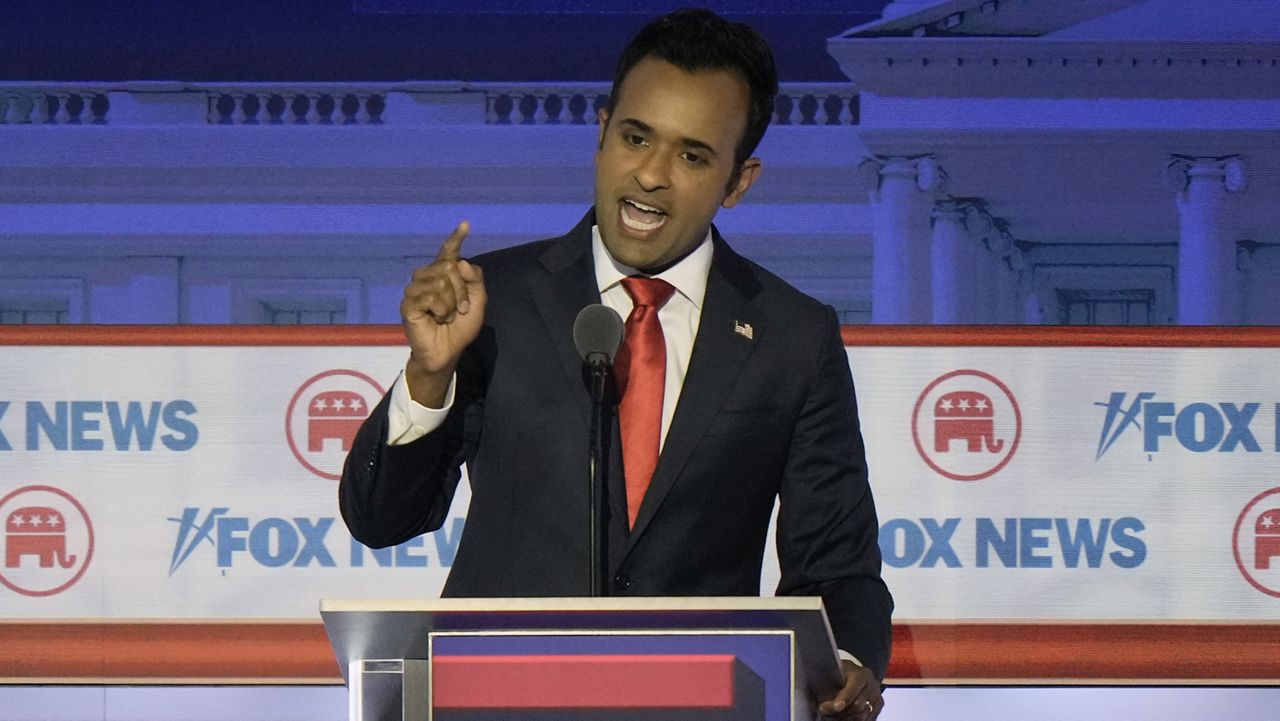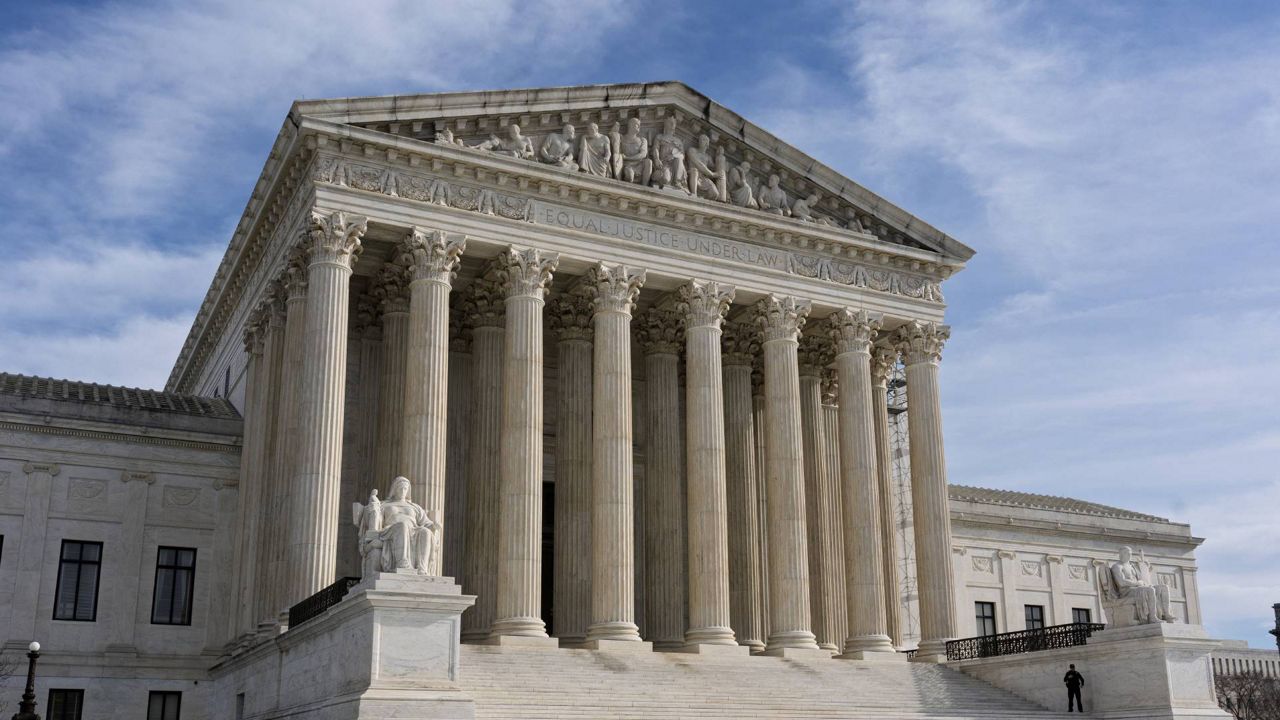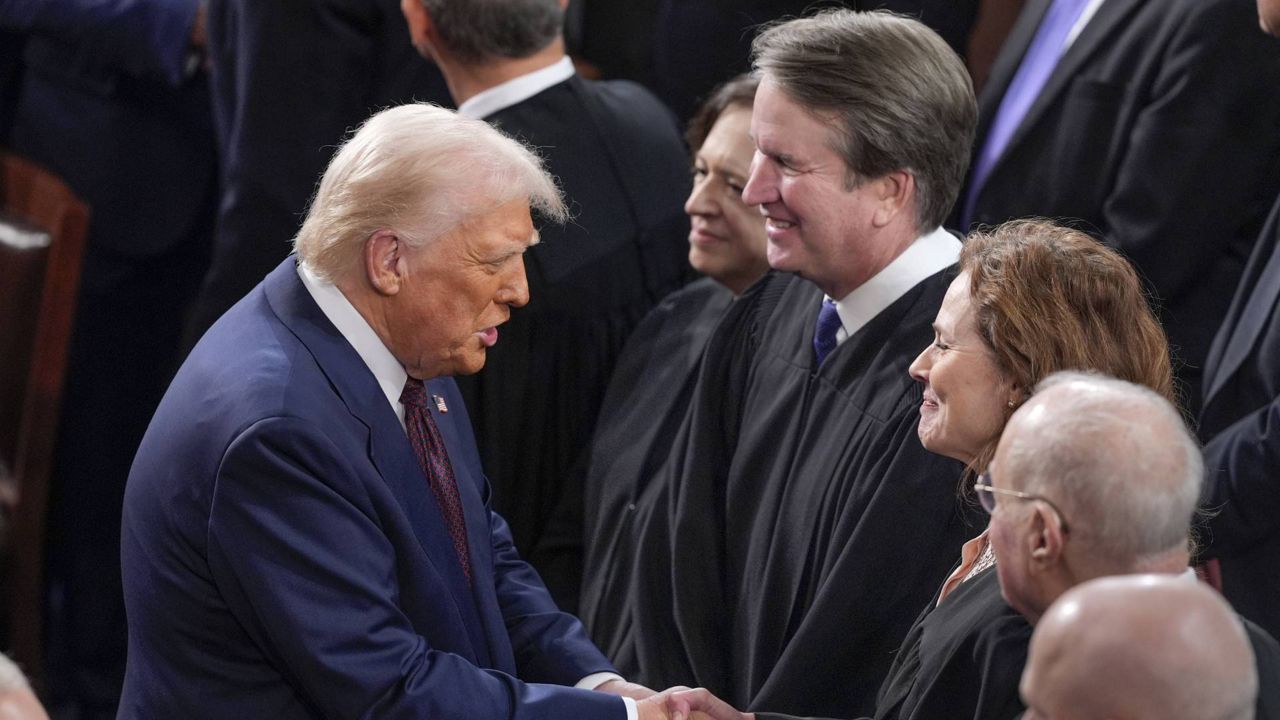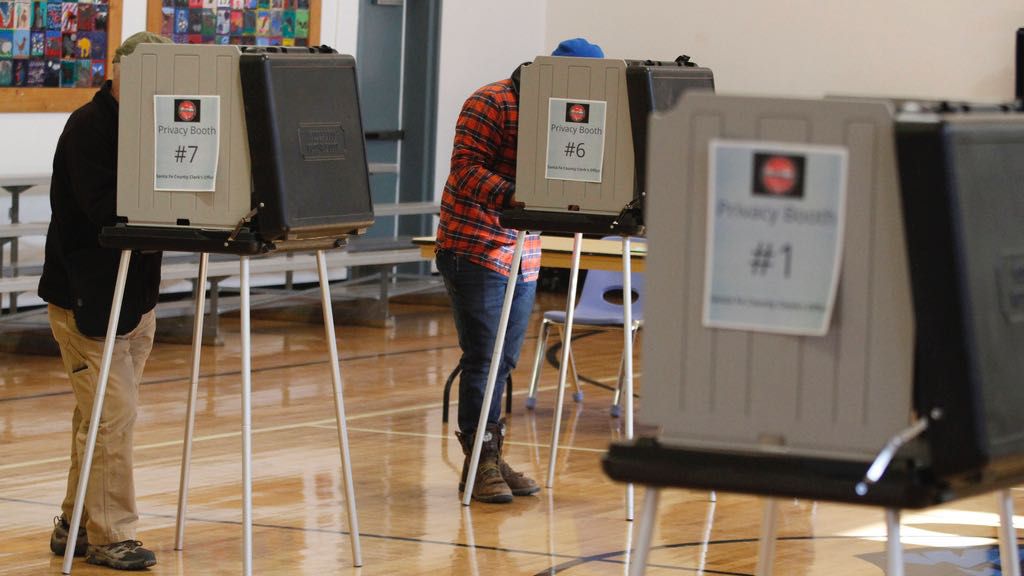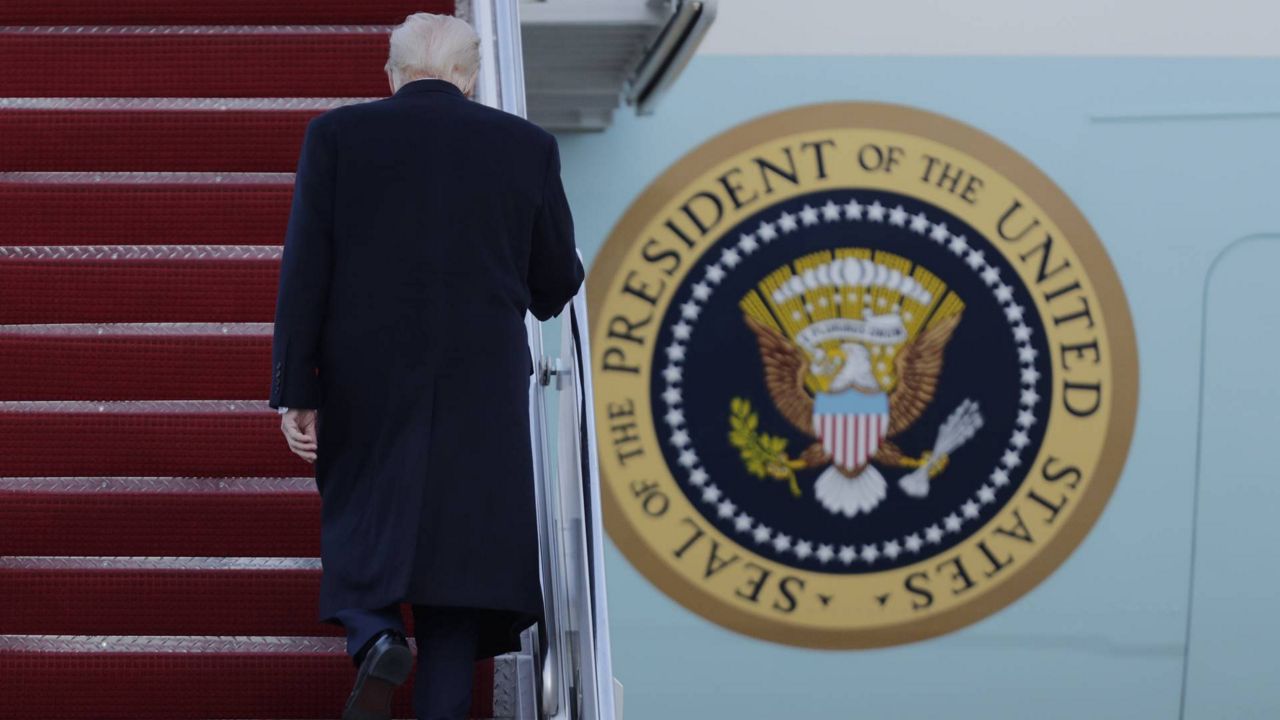Supporters might call them bold, while critics might call them extreme. But regardless of one’s political views, there are a number of promises being made by Republican presidential candidates that are indisputably attention-grabbing.
What You Need To Know
- There are a number of promises being made by Republican presidential candidates that are indisputably attention-grabbing
- Former President Donald Trump has called for sentencing drug dealers and child traffickers to the death penalty
- Trump and Florida Gov. DeSantis have also vowed to end birthright citizenship
- Other proposals by candidates include eliminating several federal departments and agencies; implementing a national abortion ban; testing the mental competency of older federal lawmakers; and raising the voting age to 25 unless certain conditions are met
They include broadening the death penalty, making changes to the Constitution and significantly shaking up how the federal government operates.
Here is a look at six such proposals:
Executing drug dealers and child traffickers
Former President Donald Trump, who is the undisputed front-runner again for the 2024 GOP nomination, says he wants to take a hard-line stance against some criminals if he returns to the Oval Office.
“We're going to be asking everyone who sells drugs, gets caught selling drugs, to receive the death penalty for their heinous acts," Trump said when he announced his candidacy in November. “Because it's the only way.”
Trump said the move will be part of the “war” he plans to wage against cartels to stop fentanyl and other dangerous drugs from entering the country.
In a campaign video, Trump also said he would ask Congress to pass legislation ensuring anyone convicted of trafficking children across the board is executed “immediately.”
In 2018, Trump signed a criminal justice reform bill that, in part, aimed to lower unnecessarily long federal prison sentences.
In June, Fox News’ Bret Baier confronted Trump about his plan to execute drug dealers, noting that Alice Johnson, a convicted dealer who served 21 years of a life sentence in prison before Trump pardoned her in 2020, might have been killed under the policy.
Trump argued that the death penalties would not be implemented retroactively and that, had the deterrent been in place, Johnson would not have committed the crime.
Similarly, Florida Gov. Ron DeSantis has said he supports the use of “deadly force” against migrants who are suspected of smuggling drugs into the country and has said he’s open to authorizing drone strikes in Mexico to weaken the cartels.
Ending birthright citizenship
With the goal of deterring migrants from attempting to enter the country by removing the prospects of having “anchor babies,” both Trump and DeSantis have vowed to end birthright citizenship.
Under a century-old interpretation of the Constitution, children born on U.S. soil are automatically given American citizenship. “All persons born or naturalized in the United States, and subject to the jurisdiction thereof, are citizens of the United States,” the 14th Amendment says.
Trump promised to end the practice during his first term but never delivered. He’s renewed the vow as he runs for the White House again, saying he’d sign such an executive order on his first day in office, a move most legal scholars say would be unconstitutional.
“My policy will choke off a major incentive for continued illegal immigration, deter more migrants from coming and encourage many of the aliens Joe Biden has unlawfully let into our country to go back to their home countries,” Trump said in a video in May. “They must go back."
DeSantis says the 14th Amendment has been misinterpreted and wants to force the courts to weigh in.
“This idea that you can come across the border, two days later have a child and somehow that’s an American citizen — that was not the original understanding of the 14th Amendment, and so we’ll take action to force a clarification of that,” he said in June.
Sen. Tim Scott of South Carolina said during a visit to the Southwest border earlier this month that he believes only Congress, not the president alone, could end birthright citizenship.
“I don't know how you do that without addressing the constitutional challenges,” he said.
Eliminating federal departments and agencies
Several federal department and agencies find themselves in the crosshairs of the candidates, but none more so than the Education Department.
Trump, DeSantis, former Vice President Mike Pence, entrepreneur Vivek Ramaswamy and North Dakota Gov. Doug Burgum have all said they want to ax the department.
“Block grant all that funding back to the states,” Pence said during Wednesday night’s primary debate.
Abolishing the Education Department has long been a goal of Republicans, many of whom view it as an intrusion on state, local and family affairs.
Pence also wants to eliminate the Environmental Protection Agency and the Consumer Financial Protection Bureau. And Ramaswamy wants to get rid of the FBI; the Bureau of Alcohol, Tobacco, Firearms and Explosives; the Nuclear Regulatory Commission; the IRS; and the Commerce Department.
“The only war that I will declare as U.S. president will be the war on the federal administrative state,” Ramaswamy said at the debate. “That is the source of those toxic regulations acting like a wet blanket on the economy.”
Banning abortion nationally
After spending a half-century fighting Roe v. Wade by arguing abortion laws should be set by states, some GOP candidates have now set their sights on a federal abortion ban.
Pence has called on all the candidates to support a ban at 15 weeks of pregnancy, but few have done so. Sen. Tim Scott of South Carolina says he favors a 15-week ban, and former Arkansas Gov. Hutchinson said he would sign a national abortion ban if he were elected.
The issue provided some of the most spirited discussion in Wednesday’s debate, particularly between Haley and Pence.
Haley argued it was unrealistic to think there would ever be enough support in Congress to pass a ban and instead called for finding common ground.
“Can't we all agree that we should ban late-term abortions?” she asked. “Can't we all agree that we should encourage adoptions? Can't we all agree that doctors and nurses who don't believe in abortion shouldn't have to perform them? Can't we all agree that contraception should be available? And can't we all agree that we are not going to put a woman in jail or give her the death penalty if she gets an abortion?”
But Pence fired back saying, “Consensus is the opposite of leadership” and, “It's a moral issue.”
After the debate, a Biden campaign spokesman said in a written statement, “Americans have rejected the extreme, anti-choice positions of MAGA Republicans in the midterms and in elections throughout this year. They will again in 2024.”
Testing older lawmakers’ mental competency
When she announced her candidacy in February, Haley said, if elected, she would seek mental competency tests for federal elected officials over 75 years of age.
If in place today, that would include the two front-runners in the 2024 election — President Joe Biden, 80, and Trump, 77. Sixteen U.S. senators and 43 House members are 75 or older, accounting for 11% of Congress.
"America is not past its prime; it's just that our politicians are past theirs,” Haley, 51, said.
Pence, 64, and Sen. Chuck Grassley, R-Iowa, 89, who is not running for president, have said voters should be able to decide if a candidate has the mental acuity to serve in office. The AARP has said, “A candidate’s qualifications, ability, and stance on the issues is what matters — not the year they were born.”
Raising the voting age
In May, Ramaswamy first proposed a constitutional amendment that would raise the voting age from 18 to 25 unless the person has served six months in the military or as a first responder or passes the same citizenship test given to immigrants.
Ramaswamy, who, at 38, is the youngest candidate in the race, calls it “civic duty voting.”
“When I think about young Americans today, I see a deficit of national pride because I see a deficit of duty,” he said in a speech announcing the plan. “You don’t value that country you inherit. You will only value a country you have a stake in building and knowing something about.
“If you make it something you have to earn, you value it more.”
Ramaswamy has acknowledged the idea is not even popular among his own campaign staff.




